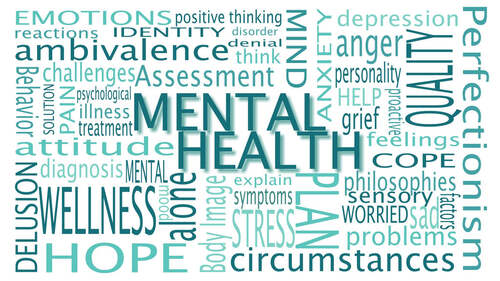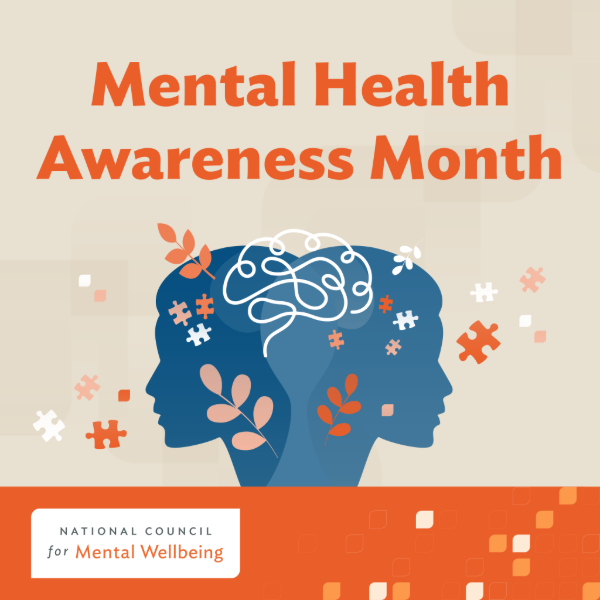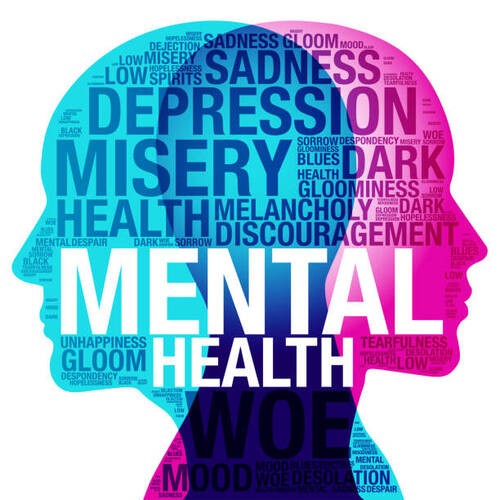MENTAL HEALTH AWARENESS

What is Mental Health Awareness Month?

May is Mental Health Awareness Month, an annual observance founded by Mental Health America in 1949 to highlight the importance of mental wellbeing, educate the public, reduce stigma and promote support for those affected by mental health conditions. Each year, individuals and organizations come together to raise awareness and advocate for better mental health care and resources.
Why Do We Support Mental Health Awareness Month?
Mental health awareness plays a crucial role in reducing stigma, encouraging early intervention and fostering empathy and understanding. By normalizing conversations around mental health, it nurtures a more compassionate society where individuals feel empowered to seek help, leading to improved mental wellbeing. Key objectives of Mental Health Awareness Month include:
What Are Some Key Facts About Mental Health?

Despite progress in mental health initiatives, more than 30 million people in the U.S. still lack access to comprehensive, high-quality care. These statistics highlight the ongoing need for Mental Health Awareness Month and the importance of bringing attention to this disparity:
Take action this Mental Health Awareness Month by focusing on what you can control — your own wellbeing. We’ve put together a free self-care checklist with simple, practical ways to support your mental health. You can download it below.

May is Mental Health Awareness Month, an annual observance founded by Mental Health America in 1949 to highlight the importance of mental wellbeing, educate the public, reduce stigma and promote support for those affected by mental health conditions. Each year, individuals and organizations come together to raise awareness and advocate for better mental health care and resources.
Why Do We Support Mental Health Awareness Month?
Mental health awareness plays a crucial role in reducing stigma, encouraging early intervention and fostering empathy and understanding. By normalizing conversations around mental health, it nurtures a more compassionate society where individuals feel empowered to seek help, leading to improved mental wellbeing. Key objectives of Mental Health Awareness Month include:
- Educating the public about mental health conditions and their impact.
- Reducing stigma by encouraging open conversations and fostering acceptance.
- Highlighting the importance of early intervention and access to treatment.
- Sharing available mental health resources, including support groups and crisis services.
- Building solidarity and reducing isolation for those facing mental health challenges.
- Advocating for improved mental health policies, increased funding and better access to care.
- Promoting mental wellbeing and self-care practices for overall health.
What Are Some Key Facts About Mental Health?

Despite progress in mental health initiatives, more than 30 million people in the U.S. still lack access to comprehensive, high-quality care. These statistics highlight the ongoing need for Mental Health Awareness Month and the importance of bringing attention to this disparity:
- 1 in 5 U.S. adults experience mental illness each year.
- 1 in 20 U.S. adults experience serious mental illness each year.
- 1 in 6 U.S. youth have a mental health condition, but only half receive treatment.
- 50% of all lifetime mental illness begins by age 14, and 75% by age 24.
- In 2023, 20% of all high school students seriously considered suicide.
Take action this Mental Health Awareness Month by focusing on what you can control — your own wellbeing. We’ve put together a free self-care checklist with simple, practical ways to support your mental health. You can download it below.
